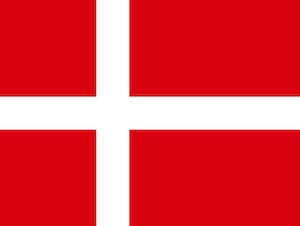New figures reveal how people under the age of 26 are among the top users of Denmark’s self-exclusion register and responsible gambling support helpline.

Forty-one per cent of the 51,000 people registered with the ROFUS self-exclusion scheme as of August 1 this year were under the age of 30.
The figures from Denmark’s gambling regulator, Spillemyndigheden, reveal that the StopSpillet helpline has received 3,200 enquiries from players, relatives and professionals since its introduction in 2019.
Thirty-seven per cent of player inquiries came from people aged between 18 and 25 and four per cent came from people under 18 – despite 18 being the legal gambling age in Denmark for the majority of products.
“When players contact StopSpillet, the advisers ask what types of gambling products the players use,” the regulator said.
“For players under the age of 26, online betting and online casino are the preferred game types. They make up 40 and 37 per cent of the types of games reported, respectively.”
Last summer, Spillemyndigheden ran a campaign for StopSpillet across social media and in public spaces. Advertisements appeared on buses and posters at bus stops and train stations.
Elsewhere, the Danish regulator has blocked a further 79 gambling sites it said were illegally offering services to players in the country.
Spillemyndigheden has now blocked 162 illegal sites in 2024 after the latest court ruling in its favour in August – the highest number of blocks in a year.
Three of the latest group of sites offered so-called skin betting, which, in this case, allows players to use Robux – the virtual currency in the mobile game Roblox – as currency for stakes.
“We pay particular attention to this new type of site, said Anders Dorph, director of the regulator.
“Roblox is a game that is very popular among children and young people under the age of 18. Our children should not be introduced to gambling when they play video games, so I am very pleased that we have blocked access to these sites.”
“We know that some players will try to bypass the DNS blocks,” Dorph added of other enforcement action on illegal sites.
“Therefore, it is very important to us that the information you come across is clear and makes the players aware that they are trying to access a site without a licence. These sites do not have the same level of consumer protection, and it can be very risky for a player to use them.”
Since 2012, the regulator has blocked a total of 438 sites.

